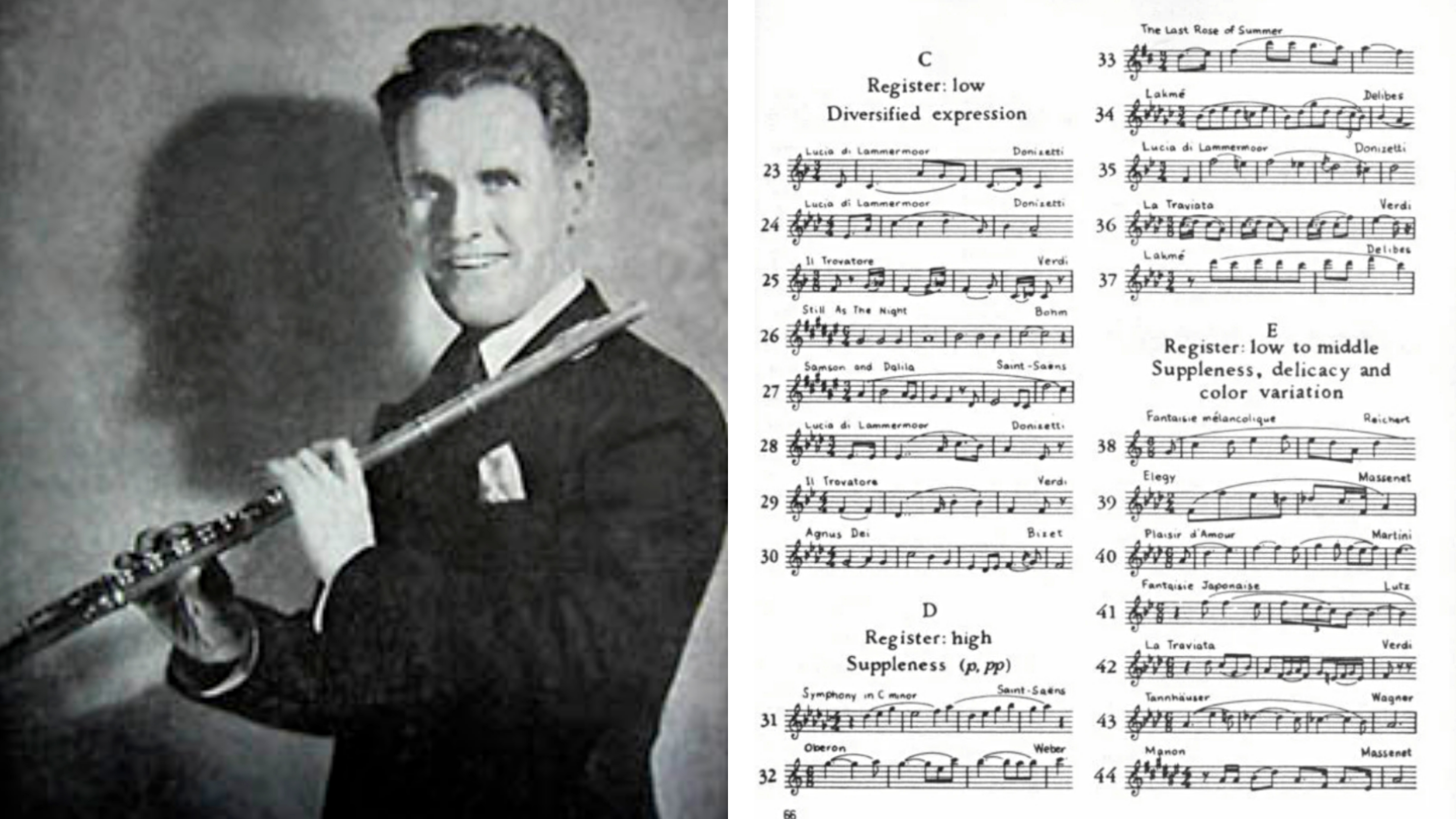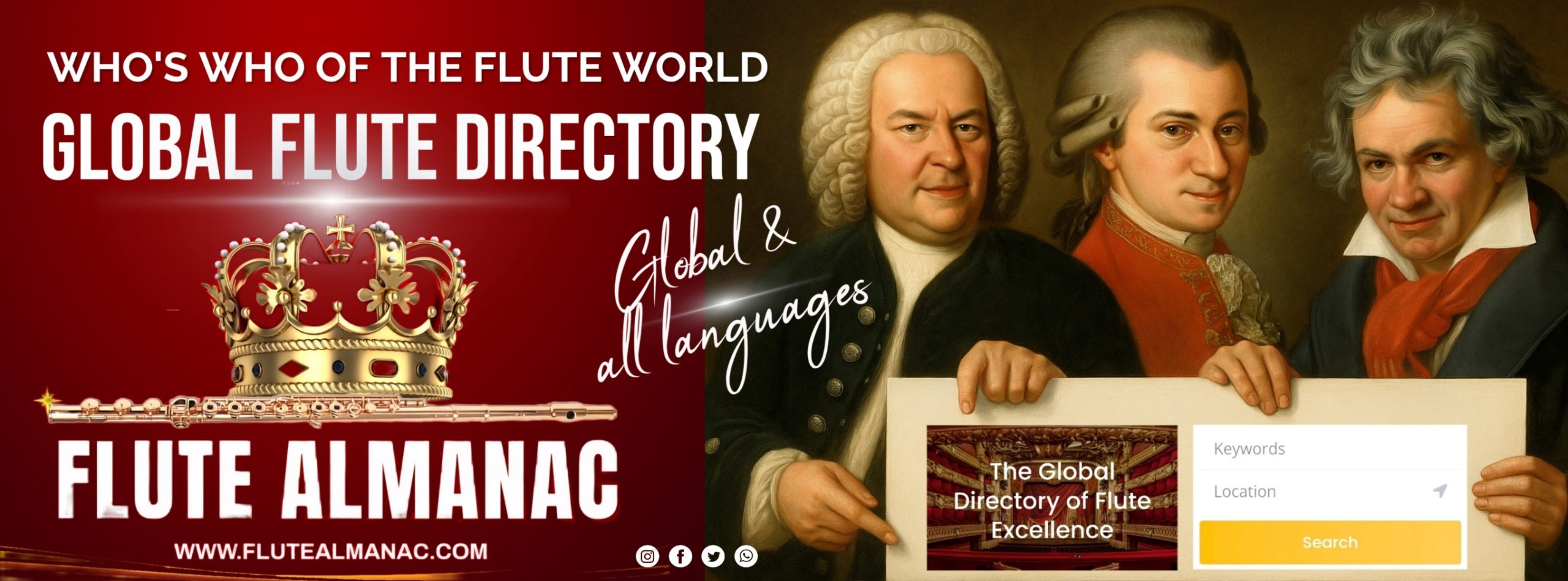
By Eileen Gilligan
Tone Development Through Interpretation by Marcel Moyse is an amazing resource he has given flute players. Not only is it full of inspirational extracts and exercises that develop subtleties and inflections in the player as well as a beautiful tone it opens the door to really looking at the flute as a musical voice. It took me a while to twig that it could give me more than looking at the extracts for their wonderful inflections and expression, but I could use it to develop the skill of the voice and the speaking point of the flute meeting at the same time. I discovered this on the Schubert Ave Maria. This was a great one to start with as it was within my vocal range so I could easily sing it with a nice voice, expression, and intonation. It was only one step further to get my voice and the speaking point of the flute to meet. The result is below in my video. The Schubert Ave Maria is not in the book, but I have added pieces like the Ave Maria to the back of the book.
Ave Maria by Franz Schubert
I have done an introduction to the Tone Development Through Interpretation below as I feel it is so important to explain why this book is so useful to players. There is also my guide to Traditional Irish Air No. 33 The Last Rose of Summer. I picked this one for this article to highlight the importance of key colour and transposition. Understanding colours is crucial to effective performance. All extracts can be transposed to different keys, but I felt this highlighted for me the problems that can arise if a player doesn’t understand the key, they are in.
Introduction
Tone development through Interpretation N0. 33
In conclusion I would like to add that storytelling in performance was developed in me by the 24 Little Melodic Studies and the Tone Development Through Interpretation by Marcel Moyse. The little studies sow the seeds for storytelling and give the player the skills to make educated musical choices. The Tone Development Through Interpretation takes this skill to a whole new level and really opens the door to a whole new world if the player is willing to learn with an open mind.
theflautist.com has a tone development section where extracts are played by me and a guide by me to it is available as well as comprehensive background and reference material to aid the player in their understanding and ability to learn and develop from these wonderful extracts.
Wibb In His Own Words
The clear message I got from William Bennett when I was learning from him was that the flute was a voice and it was the search for me to find that voice he was trying to teach me. It is a wonderful legacy he has left and has changed so many players in ways one cant imagine. I thought it was really relevant to add this quote from the book as it is the voice and the speaking point of the flute joining at the same time that I am talking about with the Tone Development Through Interpretation.


Eileen Gilligan
The Flautist | Facebook | Youtube
Eileen completed a Bachelor of Music in Performance at the Canberra School of Music in 1979 with high distinction under David Cubbin. Eileen was a Commonwealth finalist in the ABC Concerto Competition that same year with the Mozart D Major Flute Concerto with the Adelaide Symphony Orchestra.
Looking to further her studies internationally Eileen went to Europe and studied with William Bennett (Wibb) in London for 2 years and during this time was accepted as one of 10 people to play for James Galway’s masterclasses in Switzerland.
The time with Wibb focused on tone, expression, colour, control, and legato line. His thinking and musical approach focused on every single note, making it sound beautiful, have life, intensity and meaning. Wibb was taught by Marcel Moyse who wanted the flute to have the same expression and beauty of a singer or violin.
Eileen is passionate about bringing together into one place “TheFlautist.com” all her learnings and experience to help others. Utilising the content on the website and YouTube series “The Flautist”. The Flautist explores a vocal lyrical approach to the flute and tone and the challenges in repertoire and flute playing in general. The Flautist delivers the resources for the flute with guides for each piece and tools to assist with the challenges faced by flute players, as well as an understanding of the piece and composer and the era it was written.

[acadp_carousel_slider]







